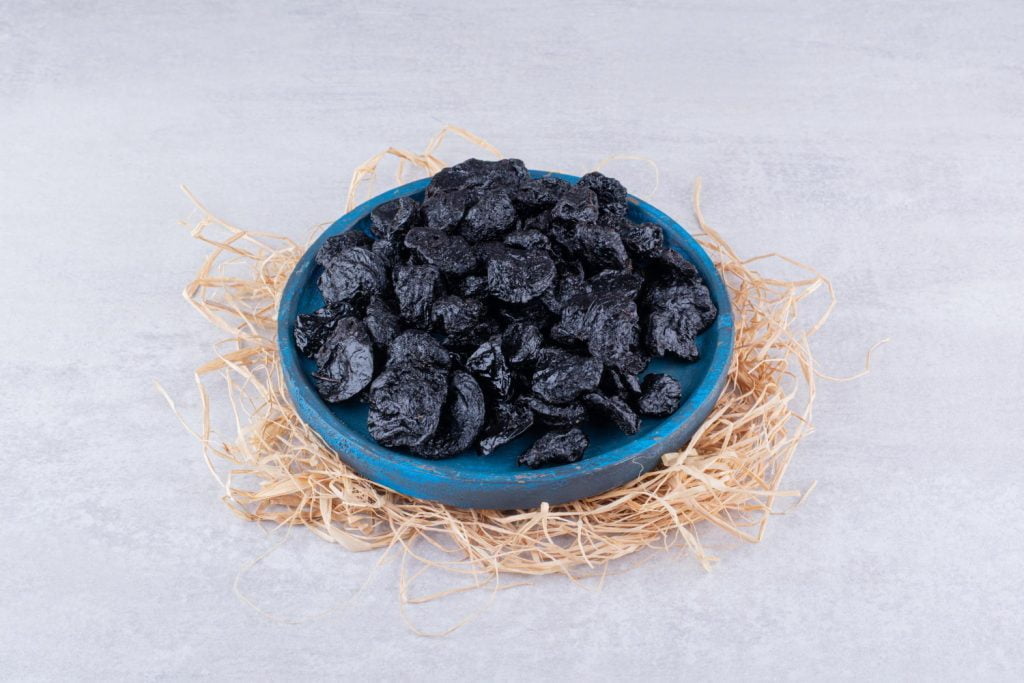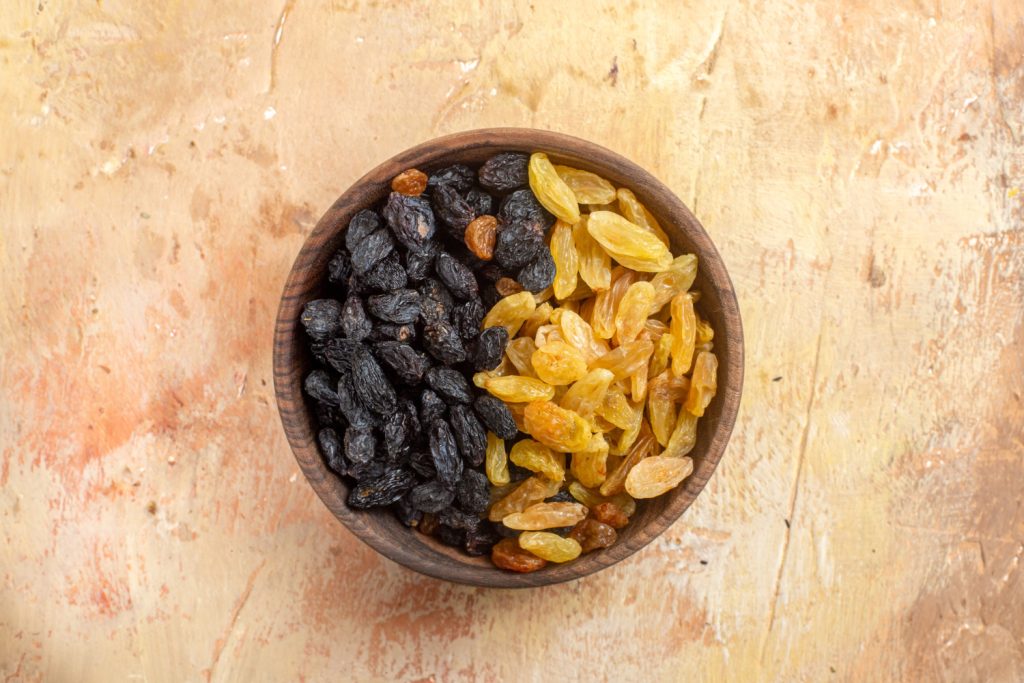Welcome to our ultimate guide on how raisins can help combat cancer! Raisins, those tiny and sweet dried fruits, are not only a delicious snack but also contain powerful properties that have been shown to have anti-cancer effects. In this blog post, we will delve into the various ways in which raisins can contribute to cancer prevention and provide you with valuable insights on incorporating this superfood into your diet for optimal health benefits. Let’s explore the incredible potential of raisins in the fight against cancer!
In the world of superfoods, raisins often take a backseat to trendier options like kale and chia seeds. However, these humble dried fruits pack a powerful punch when it comes to fighting cancer. Packed with antioxidants, fiber, and key nutrients, raisins have been shown to have significant anti-cancer properties. In this ultimate guide, we will explore the various ways in which raisins can help combat cancer, from their ability to reduce inflammation to their role in preventing the growth of cancerous cells. Join us as we delve into the incredible cancer-fighting benefits of this underrated superfood.
Nutrient Profile of Raisins
Raisins boast an impressive nutrient profile that offers numerous health benefits. Rich in dietary fiber, they aid in digestion and help prevent constipation, ensuring a smoothly functioning digestive system. Additionally, raisins serve as a good source of iron, which is essential for the production of red blood cells and the prevention of anemia. Potassium, another significant nutrient found in raisins, plays a crucial role in maintaining heart health and proper blood pressure levels. Moreover, these tiny dried fruits are packed with antioxidants like flavonoids and phenols, which protect the body against oxidative stress and inflammation.
Essential Vitamins and Minerals in Raisins
Raisins are a rich source of iron, which is crucial for maintaining healthy blood cells and preventing anemia. Containing significant amounts of potassium, they help regulate blood pressure and support heart health, making them an excellent dietary choice. In addition, raisins provide a good dose of calcium, essential for maintaining strong bones and teeth, thus contributing to overall skeletal health. High in antioxidants like vitamin C, raisins aid in boosting the immune system and protecting cells from damage caused by free radicals.

Antioxidant Components in Raisins
Packed with significant amounts of phenolic acids, raisins serve as powerful antioxidants that neutralize free radicals in the body. Flavonoids, another group of antioxidants found in these dried fruits, enhance their anti-inflammatory and immune-boosting properties. Additionally, the high concentration of anthocyanins in raisins is known to improve cardiovascular health and combat oxidative stress. Moreover, the presence of vitamins C and E in raisins plays a crucial role in protecting cells from oxidative damage while supporting overall skin health.
Specific Compounds in Raisins with Anti-Cancer Properties
Raisins are a powerhouse of specific compounds with notable anti-cancer properties. Oleanolic acid, found in raisins, has demonstrated the ability to inhibit the growth of cancer cells, providing a formidable line of defense against the disease. Additionally, the presence of resveratrol in raisins is associated with a reduced risk of cancer, offering another layer of protective benefits. Catechins, which are potent antioxidants present in raisins, help safeguard cells from damage and further diminish cancer risk. Furthermore, raisins are rich in quercetin, a flavonoid extensively studied for its anti-cancer effects.
Integrating Raisins into a Cancer-Fighting Diet
Incorporating raisins into your daily diet can be a strategic move in the fight against cancer. Rich in antioxidants, raisins help neutralize free radicals, thereby reducing the risk of cancer. They also offer a good source of dietary fiber, which promotes digestive health and may lower the risk of colorectal cancer. Additionally, polyphenolic compounds in raisins exhibit anti-inflammatory and anti-tumor properties, providing multiple layers of defense against the disease. Moreover, the natural sugars present in raisins serve as a healthier alternative to processed snacks, minimizing the intake of harmful additives associated with cancer.

Understanding Free Radicals and Oxidative Stress
Free radicals are unstable molecules that can damage cells and contribute to aging and diseases. When there is an imbalance between free radicals and antioxidants in the body, oxidative stress occurs, leading to potential harm. Antioxidants neutralize free radicals, preventing them from causing cellular damage. Chronic oxidative stress, if left unchecked, is linked to various health issues, including cancer, heart disease, and neurodegenerative disorders.
How Antioxidants Neutralize Free Radicals ?
Antioxidants play a crucial role in maintaining cellular health by donating electrons to free radicals, thereby neutralizing their reactivity and preventing cellular damage. By reducing oxidative stress, antioxidants mitigate the risk of chronic diseases and slow the aging process. They work by stabilizing free radicals, effectively interrupting harmful chain reactions within the body. Found in a variety of foods such as fruits, vegetables, nuts, and grains, antioxidants contribute significantly to overall health and wellness.
Role of Antioxidants in Cancer Prevention
Antioxidants play a pivotal role in cancer prevention by neutralizing free radicals, which can damage cells and potentially lead to cancer. Dietary antioxidants, including essential vitamins such as C and E, significantly reduce oxidative stress, thus diminishing the risk of cellular damage. Research has consistently demonstrated that a diet abundant in fruits and vegetables, which are naturally rich in antioxidants, can lower the risk of various cancers. Additionally, antioxidants enhance the immune response, providing a robust defense system that may prevent the initiation and progression of cancer cells.
Polyphenols and Their Effects on Cancer Cells
Polyphenols inhibit the growth and proliferation of various cancer cells through their potent antioxidant activity and modulation of cell signaling pathways. By disrupting mitochondrial functions and triggering cell death mechanisms, these compounds induce apoptosis in cancer cells. Furthermore, polyphenols enhance the effectiveness of chemotherapy and radiotherapy by sensitizing cancer cells to these treatments, making them more vulnerable. Certain polyphenols also prevent cancer metastasis by inhibiting angiogenesis and reducing the ability of cancer cells to migrate and invade.

The Role of Flavonoids in Preventing Tumor Growth
Flavonoids possess potent antioxidant properties that help neutralize free radicals, thereby reducing oxidative stress and the risks associated with tumor growth. These compounds can effectively inhibit the proliferation of cancer cells by interfering with cell cycle progression and inducing apoptosis. Additionally, flavonoids modulate various signaling pathways involved in cancer development, including those related to inflammation and angiogenesis, which are crucial for tumor growth and metastasis. Epidemiological studies have consistently shown that a higher dietary intake of flavonoid-rich foods is associated with a lower incidence of certain types of cancers.
Role of Antioxidants in Cancer Prevention
Antioxidants play a pivotal role in cancer prevention by neutralizing free radicals that can damage cells and lead to the development of cancer. Dietary antioxidants, such as vitamins C and E, are instrumental in reducing oxidative stress, which is a key factor in the initiation and progression of cancer cells. Research has consistently shown that a diet rich in fruits and vegetables, which are abundant in antioxidants, can significantly lower the risk of certain cancers. Not only do these antioxidants help in combating oxidative stress, but they also enhance the immune response, offering an additional layer of protection against cancer.
Daily Recommended Intake of Raisins for Optimal Health
Consuming a small handful of raisins daily can provide essential vitamins and minerals beneficial for heart health. These tiny dried fruits are a good source of dietary fiber, which aids in digestion and prevents constipation when consumed regularly. Including raisins in your daily diet can also help regulate blood sugar levels due to their low glycemic index. Moreover, a daily intake of raisins can contribute to bone health because they are rich in calcium and boron.
Recipes and Meal Ideas Incorporating Raisins
Raisins add a natural sweetness to oatmeal cookies, enhancing their flavor and texture, making them a beloved treat for all ages. Incorporating raisins into salads gives a delightful contrast with fresh greens and tangy dressings, creating a burst of flavors in every bite. A handful of raisins can transform a simple bowl of oatmeal into a nutritious and flavorful breakfast, offering a wholesome start to your day. Additionally, raisins can be used in savory dishes like Moroccan tagine, providing a sweet balance to the spices and adding depth to the dish.

Conclusion
In conclusion, raisins are not just a convenient and tasty snack; they offer profound health benefits, particularly in the realm of cancer prevention. Their rich nutrient profile, brimming with essential vitamins, minerals, and potent antioxidants, makes them a powerful ally in combating oxidative stress and neutralizing free radicals—key factors in reducing cancer risk. Specific compounds in raisins, such as oleanolic acid, resveratrol, catechins, and quercetin, have been extensively studied and shown to possess significant anti-cancer properties. Incorporating raisins into your daily diet can be a strategic move for not only boosting overall health but also for forming a robust defense against cancer. Whether sprinkled on your morning oatmeal, added to a savory Moroccan dish, or enjoyed as a simple snack, raisins provide a versatile means to harness these health benefits. By making raisins a regular part of your meals, you can take a delicious step towards better health and a proactive stance in the fight against cancer.

